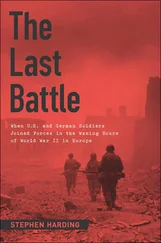The final seconds of December didn’t tick by so much as wind down, and it had to cross everyone’s mind that maybe we were spinning on the axis of a global tomb. We were privileged to be the children of millennial paranoia, and we dutifully watched the skies and waited for the great infernos.
Nothing happened.
“Ah . . . knew it all along” rapidly replaced the more uneasy sentiment of “We may be dicked” from twenty-four hours before. No one has ever been as disappointed as I was when I found myself earthbound at 12:01 a.m. I was so numb you could have performed open heart surgery on me without anesthesia. I’d wanted total death for everyone and everything, the entire creation laid in ashes. No great advances in humanity, no new breakthrough by which to measure our unremarkable evolution, no more accolades for reinventing the wheel. This wasn’t an idle hope for me. I’d felt it, like a pregnant woman feeling her baby kicking; a glorious certainty.
It was in the trepidation we all felt standing in line at the post office, watching those digital clocks with the red numbers running backward (310 DAYS 17 HOURS 26 MINUTES 32 SECONDS . . . 31 SECONDS . . . 30 SECONDS . . . until 2000). The smiles were too long, the laughter too forced, the desperate glances too apparent. The cancer was awake in us all, and nothing was benign anymore. . . . But nothing happened.
The heavens did not open, and renegade angels did not begin tear-assing through the skies to lay waste with fire and brimstone. Extraterrestrials didn’t glide in on flying saucers and eradicate an experiment gone awry. Warheads didn’t rocket into the most populated cities and burn everyone to radioactive embers. The old people who lived below me read aloud from the Book of Revelation, as if it were an incantation to summon their lord.
No one came. No one left. I spent most of New Year’s Day waiting for the impetus to go ahead and end it all, but like the storm of Armageddon I’d eagerly awaited throughout 1999, it never came. Perversely, the time did not feel right for even that just yet. I was resigned to continue. Supposedly a year away from inhabitable space stations and homicidal computers named HAL, we were still mastering the art of cracking skulls by the watering hole. In the interim, years passed, always with this sense that we had let a golden opportunity slip away, our best chance at world incineration forever lost.
And what I saw was worse than I’d imagined. A new era without a substantial revelation was a sobering concept, but I wasn’t prepared for its actuality. Everyone was embracing the end of innovation. It didn’t matter to them that everything had been done before. It could be overcome, they reasoned, by exhaustive repetition. The sterility of the radio reached a new low. Lifeless three minute sound bytes were the hymns of choice in the secret praise of creative impotency. In theaters, everything was a remake, a sequel, or an adaptation of an old TV show. Books were streamlined to pull us to the end more quickly; plot and characters were incidental. The mediums we used to put our pointless lives aside were corrupted. No aesthetic and no catharsis. Even language had become infantile—phrases like the C word, N word, R word, F bomb , a watchdog society taking on the role of that kid in first grade who couldn’t wait to tell the teacher you said a bad word like “shut up.”
Social networking, too. A world more in contact with each other than ever, and we chose to tell each other what we ordered for lunch.
I was forced to seek solace in my work. My job had always been a somewhat amusing distraction before, but now I was asking it to carry all the weight. The endeavor was unquestionably doomed, but there was simply nowhere else to turn. I was on the outskirts of the Information Age. I wrote the text to those pamphlets you find in doctor’s offices, insurance agencies, college campuses and the like. Very inspirational stuff with titles such as First Indications of Trichomoniasis and Do You Have Ovarian Cancer? I spent forty hours a week writing condensed prophecies of suffering for people who hoped against hope their symptoms were anything but. I warned students that unprotected sex was that first step on the road to painful sensations while urinating and the ultimate failure of the immune system. My office was adorned with a sign reading DON’T BLAME THE MESSENGER.
I developed a new fascination with my subject matter. Diseases were rather admirable. Once they realized they could be cured, they mutated. Sickness was the only source of originality anymore. The way it took control of you was essentially a form of possession. It altered your physiology and psychology, as well as how you were perceived by those around you. Your proximity became unbearable. Contagious, too, possibly; if not then, a few generations down the bloodline when the genetic remnants chose to activate, like a bomb hurled through the portal of a time machine. I wasn’t being asked to discourse on the skillful adaptation of diseases, however, and that eventually cost me my obsession. I was another cog to keep the post-1900s repetition machine rolling. Each pamphlet was more of the same: Because you failed to wear one of these or you ate too much of this or you have too little of that, you are going to feel marginal discomfort, suffer greatly, or consider contacting a lawyer about making out your last will and testament. The following procedures might increase the rather futile chances of your recovery, or prolong your pain beyond all sanity. Words like “agony” and “death” lost all meaning to me; they were just 12-point letters in a universal font on my screen.
When I abandoned all hope and interest, Ursula came into my life. The artist who had always drawn the anatomical diagrams for the pamphlets moved on. His big break had apparently come when his highly original comic strip featuring the daily “hilarities” in the life of a nuclear family was optioned for nation-wide syndication. Our man Murphy had drawn his last rendering of fallopian tubes and sauntered over to greener pastures. He didn’t bow out with much notice, so we needed a verrucose urethra in a bad way. I think they accepted the first person to apply, and it turned out to be her. “Hello, I’m Ursula,” she said by way of introduction. She was very stiff-postured, and her handshake would have made rigor mortis envious. She gave off no genuine warmth, and I think that’s what attracted me to her. I saw myself mirrored in her lack of enthusiasm. The women I generally worked with were perky types who would probably be wowed by flowers and stuffed animals. Ursula didn’t seem the type to ally herself with them, and seemed embarrassed for them.
I introduced myself and gave her the text for the pamphlet. I had to test her; had to know immediately. “At one point,” I said, “there was talk of using diagram templates instead of just having an artist. I don’t know what came of that.”
Ursula showed no visible reaction. “There are too many templates already, don’t you think? Just the same sources waiting to be dressed up a little, if at all.”
Her answer told me more than I’d been seeking. She’d echoed me even more strongly.
“When are you going to lunch?” I asked. Things began to evolve from there. I could give a synopsis of our conversation that day and not even have to tell you who said what. The answers would have been the same for either of us.
“What are your career goals?”
“I have none.”
“How do you feel about violence?”
“Quite good.”
“Do you foresee better things for the world in general next year?”
“Quite the opposite.”
And so on. We only deviated from this when I asked about her artistic talent. She said, “That’s a gray area. I think my work—what I do for myself—is becoming something very different.”
Читать дальше












